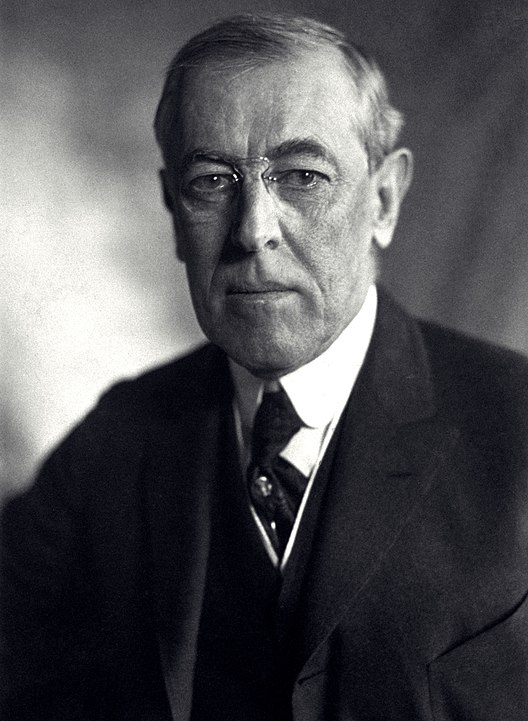By 1861, both of Wilson’s parents had come to side with the Southern United States ultimately, and during the American Civil War, they joined the Confederacy. Still, Woodrow Wilson did not share the views of his father based on his later writing.
He spent a year in North Carolina at Davidson College and three at Princeton University, where he earned a bachelor’s degree in 1879. He blossomed intellectually at Princeton, reading widely, engaging in conversation, and editing the college newspaper. He published a scholarly essay that associated the American government with the British parliamentary system, a topic that he would further establish in his first book and apply in his political career while still an undergraduate.
He practiced law in Atlanta, Georgia, for a year, after graduating from the Law School of the University of Virginia, but it was a lousy profession. In 1883, he began graduate studies at Johns Hopkins University and earned his doctorate three years later. He published Congressional Government in 1885, a magnificent piece of scholarship that analyzes the problems resulting from the division of the American Constitution’s legislative and executive powers. Also, he married Ellen Louise Axon in the same year and had three children together: Margaret, Jessie, and Eleanor.
Ellen was shrouded by her bouts of depression, including Woodrow Wilson’s affair with Mary Allen Peck. She died in August 1914, leaving Woodrow Wilson devastated. When he met Edith Bolling Galt, he recovered from his inconsolable grief and remarried in December 1915.
Woodrow Wilson taught Greek and Roman history for three years at Bryn Mawr College and two years at Wesleyan College and coached the football team and established a debate team before entering the Princeton University faculty as a professor of jurisprudence and political economy. As a lecturer, he was immensely popular, and as a scholar, he was effective.
He was best known for his views on improving education as president of Princeton University from 1902 to 1910. He wanted to reform the admission system, the pedagogic system, the social system, and even the campus’s architectural design to pursue his idealized intellectual life for democratically chosen students. Woodrow Wilson was a thinker, however, who needed to behave. So, he entered politics and once again distinguished himself as a reformer from 1911 to 1913 as the State of New Jersey’s governor of the on the ticket of the Democratic Party after beating the Republican nominee, Vivian M. Lewis.
As governor, he concentrated on four major state reforms: electoral reforms, the dishonest act of practice, workmen’s compensation, and a utility regulatory commission’s formation.
Woodrow Wilson won the 1912 presidential race when the Republican vote was divided between William Howard Taft and Theodore Roosevelt. He set out to institute the changes he outlined in his book The New Independence upon taking office, including the transformation of tariffs, the revision of the financial system, the regulation of monopolies and false ads, the prohibition of unfair market practices the like.
On March 4, 1913, he became the twenty-eight president of the United States. He rolled out his reform plan immediately upon taking the post. He implemented the Federal Reserve System, checked monopolies and unfair trade practices, set up an eight-hour workday for interstate railroad employees with extra pay for overtime work, and expanded credit for rural farmers.
Woodrow Wilson initially adopted a neutrality policy when World War I broke out in Europe on July 26, 1914. He claimed that one had to be cruel and ruthless to fight. In 1916, he was re-elected for a second term. His neutrality policy played a significant role in his victory and the slogan “He kept us out of the war.” revolved around his election campaign.
He was forced to review his policy of neutrality during his second term because of Germany’s unrestricted submarine warfare. Germany disregarded the neutrality of America and sunk American ships.
The United States entered World War I in April 1917 and, during this time, Woodrow Wilson led the nation well. Americans were regarded as heroes after the war.
Woodrow Wilson suggested the “Fourteen Points” at the end of the war as the basis for the Versailles peace treaty; the last point was the formation of the “League of Nations” to guarantee world peace. The ‘League of Nations’ acted as a counterpart to the new ‘United Nations Organization’ and was primarily intended to ensure that no such war would occur in the future.
He endorsed the 19th Amendment in 1918 on the domestic front, empowering women to vote. In 1919, Woodrow Wilson received the ‘Nobel Peace Prize’ to recognize his contributions to the ‘League of Nations’ creation. In October of the same year, he suffered a severe stroke and never recuperated in his office term’s remaining seventeen months. Edith concealed the seriousness of his condition and made rulings in his absence.
On February 3, 1924, at the age of 67, Woodrow Wilson died. His body was buried at Washington National Cathedral in a casket. He is the only president whose body has been buried in the capital.
US Presidents | ||

